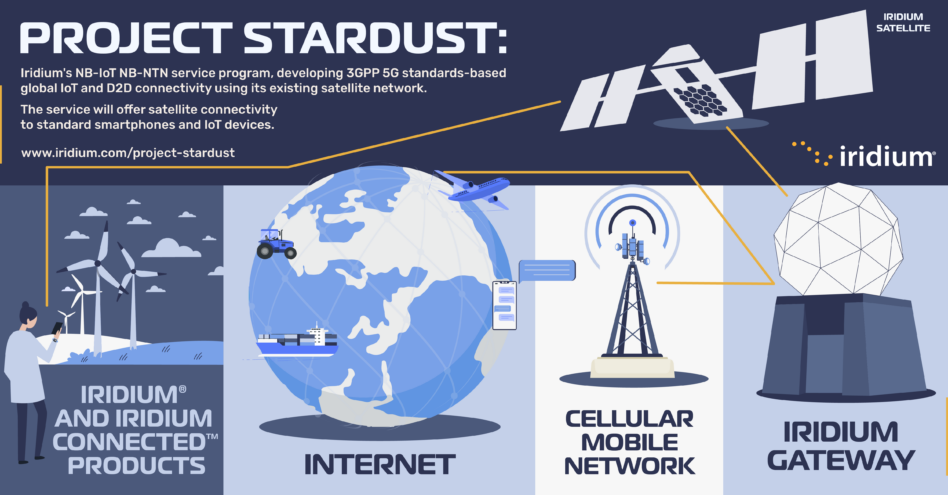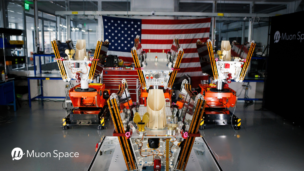Iridium ($IRDM) is back in the market for direct-to-device services from space after revamping its strategy for the buzzy business. This morning, the satellite operator unveiled Project Stardust, an approach to the market that takes advantage of existing mobile standards to ping satellites and receive messages from space via cell phones and other devices.
“The industry is moving quickly towards a more standards-based approach, and after surveying the field, we found that we’re the best positioned to lead the way using our own network, particularly given our true global coverage,” CEO Matt Desch said in a release.
If at first you don’t succeed…Iridium first waded into the direct-to-cell market with a partnership with Qualcomm, in which the two companies planned to incorporate satellite-compatible hardware into new devices.
The approach worked well from a technical standpoint. Iridium and Qualcomm successfully demonstrated messaging early last year. In the end, smartphone manufacturers just didn’t bite, citing prohibitive costs and a lack of consistent standards with the modified tech, so the pair called off their partnership in November to pursue other options.
Try, try again: Instead of the proprietary approach that defined the Qualcomm partnership, Project Stardust will use Iridium’s existing constellation plus a software update to enable connectivity with equipped devices on the ground.
- It’s a standards-based approach, meaning that it complies with 3GPP 5G standards to allow multiple users will be able to use the network infrastructure.
- The service will start off with messaging and SOS capabilities.
- Testing is expected to begin in 2025, and service will launch in 2026.
The upshot: Several players have emerged over the past few years to compete in the still-new market, which Euroconsult recently predicted could be worth $1B as early as 2027 (and with ~85% of the Earth’s surface out of reach of terrestrial cell towers, there’s certainly opportunity there). SpaceX recently deployed its first Starlinks with the capability embedded, and AST SpaceMobile ($ASTS) and Apple are also exploring their own versions.




